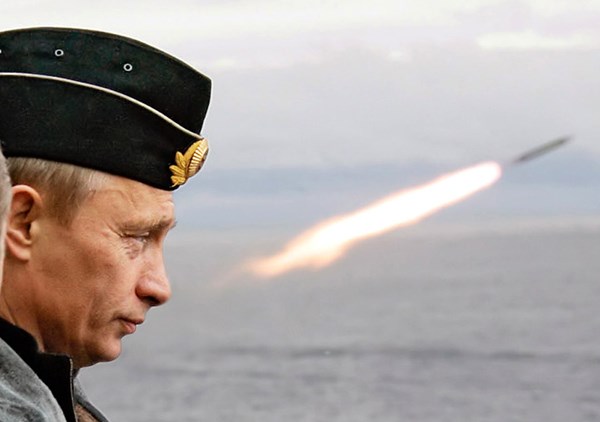Russian revolutionary ballistic missile fails to launch before Putin’s eyes
Russia’s Grom (“Thunder”) 2019 exercise conducted in the Arctic between October 15 and 17 to rehearse the outbreak of nuclear war has exposed problems in Russia’s strategic nuclear forces.
During the maneuvers, which involved more than 12,000 troops and which were led by Russian President Vladimir Putin himself during the final stage, there was an incident on the nuclear submarine K-44 “Ryazan”.
As reported by Vedomosti , citing sources close to the Defense Ministry, the submarine, which falls under the 25th division of Russia’s Pacific Fleet, was unable to carry out even one of the planned R-29R intercontinental ballistic missile (ICBM) launches.
The missile that was supposed to hit the Chizha testing range failed to leave the silo, and the submarine returned to base with the projectile still not fired.
The incident may have resulted from the failure of certain submarine systems used to transmit the launch command, one source told Vedomosti. A commission comprising of representatives of the Pacific Fleet Command, the Naval General Staff, and the defense industry has been established to investigate the causes of the incident.
A total of 16 ballistic and cruise missile launches were planned for the exercise. Several of the missiles have been in the armament for more than 40 years, and a 100% success rate should not be expected from outdated ICBMs, observed Viktor Murakhovsky, editor-in-chief of the Arsenal of the Fatherland magazine: “Even with the extended lifespan of the newer strategic products, misfires occur.”
R-29R missiles form part of a D-9R system that was installed on project 667BDR Kalmar-class submarines in Soviet times. The Ryazan is the last submarine of this type still in active service: all of its predecessors have either been scrapped already or are awaiting scrapping.
Launches of R-29Rs during the exercise were necessary to extend their service life, which had in any event been effectively exhausted, observed a source close to the Naval General Staff.
Russia’s latest missile systems also encountered problems. The ships Tatarstan and Grad Sviyazhsk were only able to launch Kalibr missiles after the second or third attempts, a source close to the General Staff told RBC news agency.
“Fine-tuning was expected to take 15 minutes. But the Kalibrs didn’t leave from the first command. In the end, the missiles flew off, but it wasn’t on the first attempt, and it was only after the reserve launch systems had been activated,” he explained.
